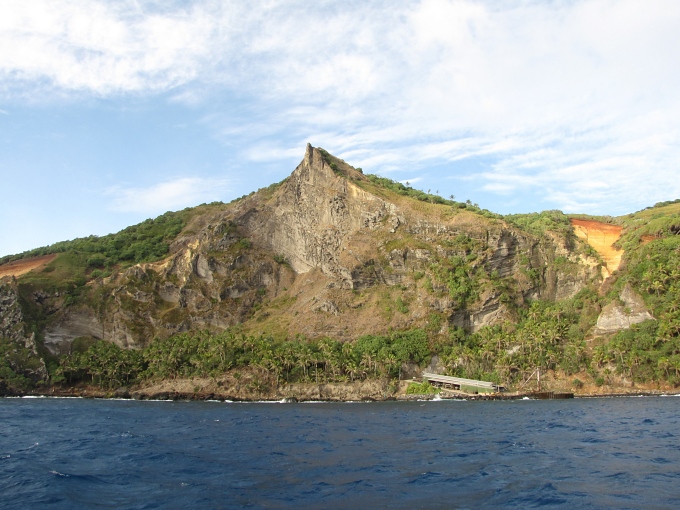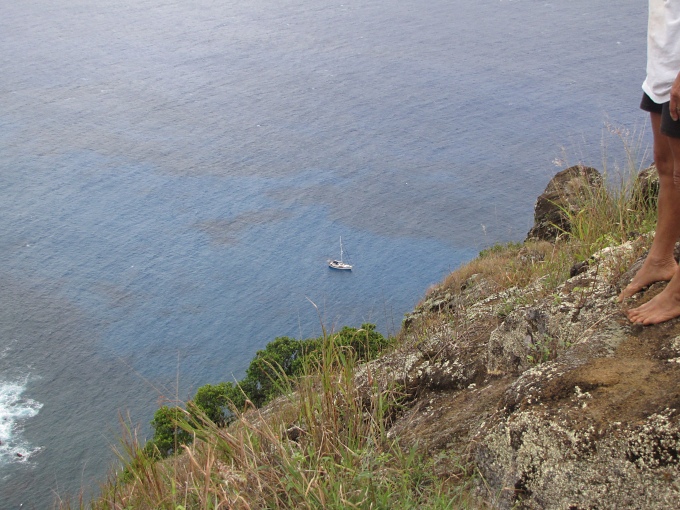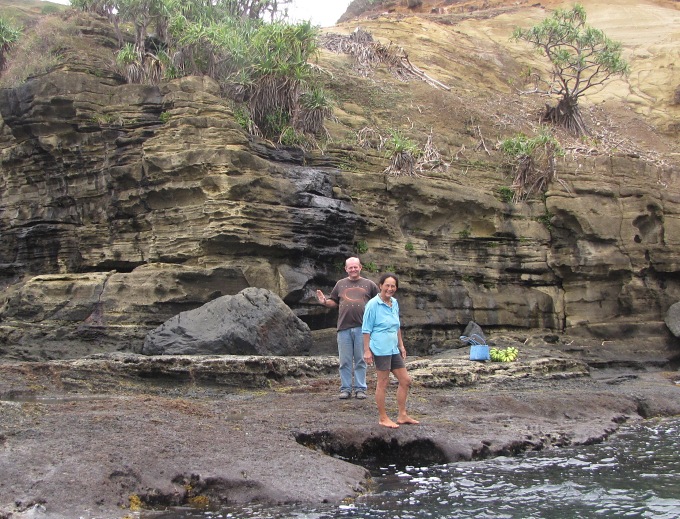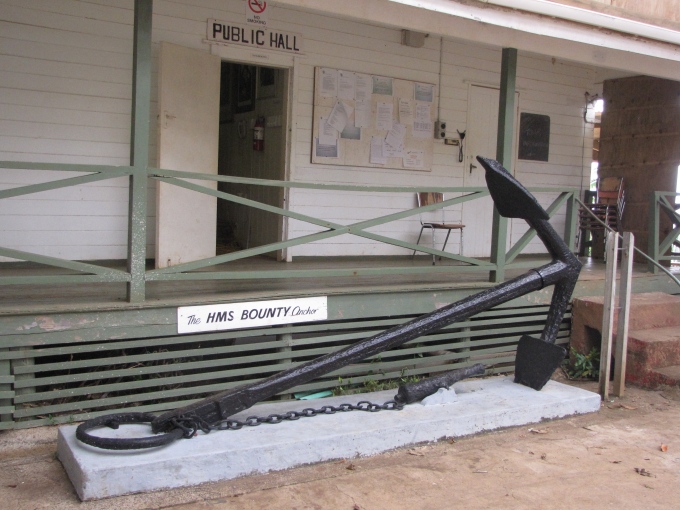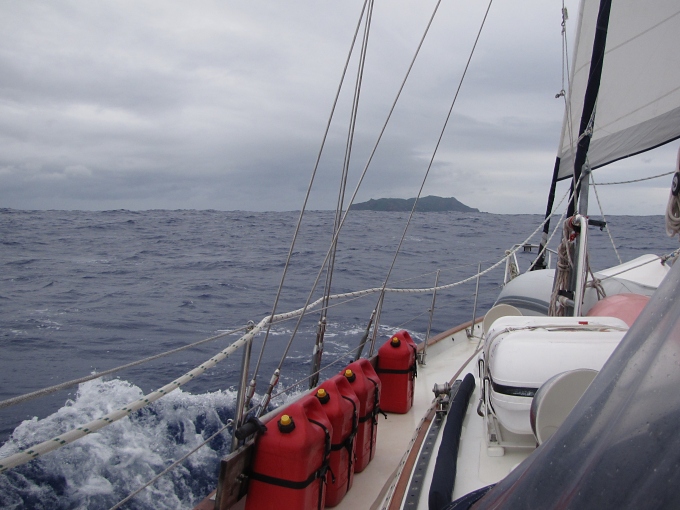Pitcairn Island - The Welcoming Descendants of a Mutinous Crew
/This blog post was written and queued before Casey's death. If we stumble a bit over the next few days, please understand.

There are some places you just can't get to any other way than by boat and Pitcairn Island is one of them. One of the most remote islands in the world, here the mutineers of HMS Bounty settled and scuttled their ship in hopes of avoiding discovery by the British Navy. They were successful in avoiding prosecution, but destined to spend the rest of their lives on this tiny speck in the middle of the South Pacific Ocean.
We had been in touch by e-mail with Brenda Christian (great-great-great-great granddaughter of Fletcher Christian) before we departed Chile in February. E-conversations with Brenda en route with earlier research had given us some good background about Pitkern (the way the locals pronounce it) and we were anxious to land and learn more. We arrived late afternoon in Bounty Bay, found a sandy spot to anchor went ashore the following day.
Bren hailed on the VHF radio first thing in the morning to plan our meeting. The weather was settled and we were able to take our own dinghy ashore rather than the island's long boat. Bounty Bay’s tiny harbor is fairly well protected by a man-made breakwater. We dragged our dinghy up the slipway and completed initial formalities in the boathouse.
We climbed aboard Bren’s quad (ATV), which is the usual mode of transportation on the island, and up, up, up we went along the steep, switch-backed road to Bren’s house for coffee, fresh bread with Pitcairn honey and formal stamping of our passports. Bren is the Immigration Officer as well as Chief of Police. “It's how it is when you have a population of 46 people”, she told us. “Everyone has several jobs to do, but none are full time.”
Formalities complete, we chatted amiably with Bren and her husband, Mike, and then went with them for a tour of the island. It might be a small island, but there was plenty to see. Vista after vista enthralled us, interwoven with the history of the Bounty mutineers and information about local flora and fauna. Place names like Oh Dear, Down Rope, Bitey Bitey and Where Dan Fell all had associated stories.
We managed three night’s anchorage at Bounty Bay before we had to move to avoid the east winds and swells that had developed. Bren came aboard for coffee one morning. Mike gets seasick and declined our invitation. We met them both at the little natural harbor at Ted’s Side to say goodbye on our last day. They were loaded with fruits and gifts for our departure and we were overwhelmed with their generosity.
You need to get to Pitcairn by boat, but not necessarily your own boat. You can catch a ride on a supply ship from the French Gambiers, invest in an adventure expedition from the Cook Islands or catch a lift from a yachtie perhaps. Some cruise ships do stop at Pitcairn. There are few services available on Pitcairn and those are usually only available on request. If you plan to stay, it would make sense to contact someone there first to arrange transportation, lodging and meals. There is a bank, but no ATM. New Zealand dollars are the local currency, but no one had a problem accepting US dollars. There is an internet/call center, but it's not always available. There are no car rentals, but you might be able to rent or borrow a Quad if you inquire in advance. There is a medical clinic which seemed to have reasonable facilities with a doctor in residence. The Pitcairn General Store offers basic supplies and is open on request. The island has abundant fruit trees. Residents are happy to trade for fruit and vegetables that are available or perhaps give you some, but always ask before picking. We used Lonely Planet South Pacific 
Things We Recommend:
Tour of the island: fabulous views, John Adams’ grave, Christian's Cave, Eco-Tours, several marked hikes. Lots of flowers and birdlife.
Diving: the Bounty is scuttled 50M from the dock in Bounty Bay harbor; not much remains, but what's there can still be seen in crystal clear water.
Crafts: There are no shops per se, but many Pitkerners sell souvenirs out of their homes. Miro wood (rosewood) carvings, especially dolphins and HMS Bounty replicas, pandanus palm baskets, t-shirts, Pitcairn memorabilia, Pitcairn honey. Just ask. Someone will direct you.
The Pitcairn Museum is small, but provides a good overview of the island and its history. Open on request. Admission by donation.
Pitcairn Island stamps are collectibles. The Post Office will open on request.
Read Mutiny on the Bounty

Note that there is no all-weather anchorage at Pitcairn Island. Depending on the winds, you must be ready to haul anchor and move rather quickly to a more protected spot. The Pitkerners are keen weather prognosticators and can usually tell you a change is in the wind and where the best protection might be. If you're not on your own boat and you plan to stay ashore, you won't have this worry.
Nine of Cups was the fourteenth sailboat to call at Pitcairn in 2009. The islanders are hospitable, welcoming and overwhelmingly generous. We left laden with fresh fruit, many gifts and fond wishes. We’d consider it a “must-see” place if you’re in the neighborhood. If you go, consider e-mailing ahead to let them know you’re coming and to see if there’s anything you might bring for them (keeping in mind the ramifications of such a promise if you can’t stop). Also consider bringing gifts such as rum, wine, DVDs and CDs. Country-western music is particularly popular.



